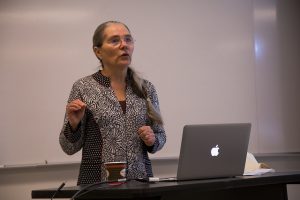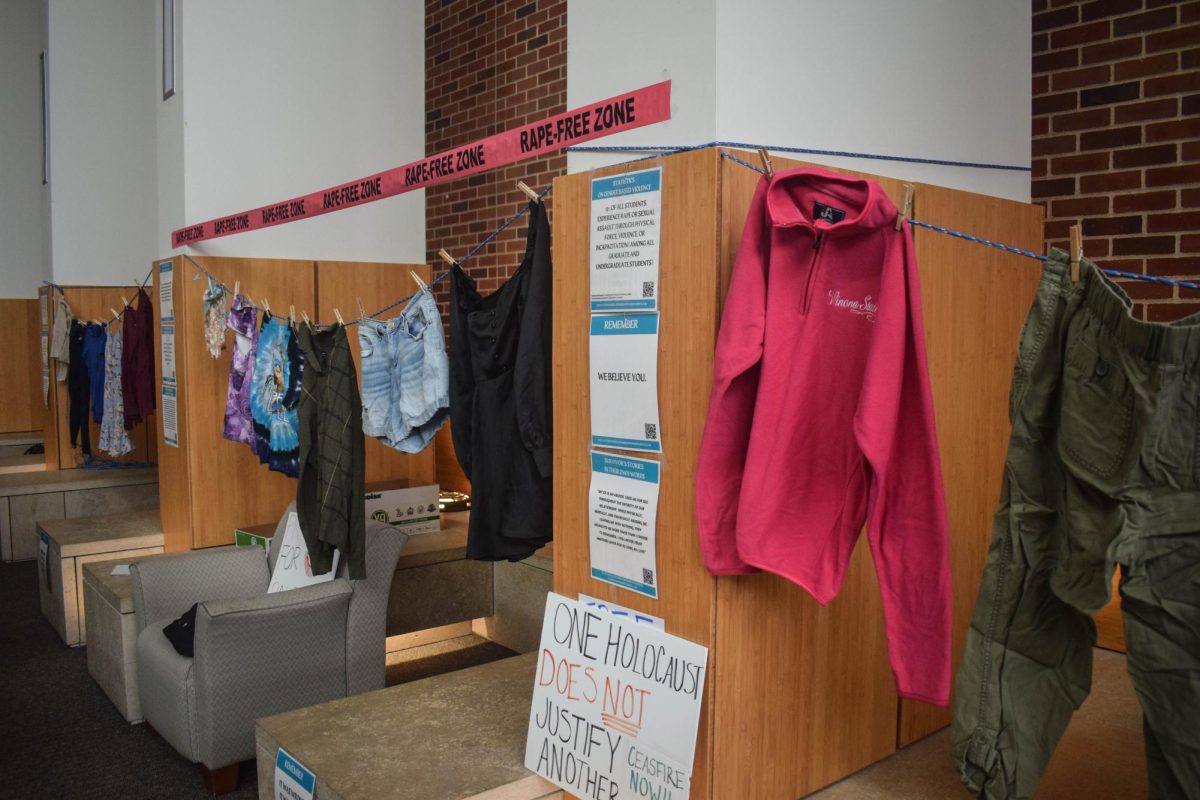Kilat Fitzgerald / Winonan

Many great experiences come from immersing oneself in unique human cultures. Linda D’Amico, a cultural anthropologist, dove into the lessons she learned from her Fulbright experiences with enlightening detail in her presentation titled, “Cloud Forest, Political Ecology and Wellbeing in NW Ecuador.” D’Amico presented in Winona State University’s Pasteur Hall on Saturday, Jan 21.
“In anthropology, we look at the history, the political economy over time, as well as expressive culture,” D’Amico said. “It’s a social science.”
Gaining a grasp on the unique dynamic of a culture’s political, socioeconomic and ecological structure is a task which requires in-depth knowledge. Her numerous journeys through Fulbright scholarships included work in Ecuador, Bolivia and Morocco, where she helped with several educational programs. These endeavors included women’s rights in Morocco, and bilingual graduate student education in Bolivia.
D’Amico was able to employ methods to learn about people outside of the classroom environment by living among the local populace, common ground was naturally found. She thanks her children for helping her become friends with other moms in the area and strengthening that connection.
The opportunity for immersion in Latin America also exists for students. D’Amico plans to bring a travel study to Ecuador in May. Students attending can expect to learn extensively about interculturalism, biodiversity and a chance to experience the majestic Andes mountains. The three week, six credit travel study is a great opportunity for those that want to be civically engaged, while also fulfilling goals nine and 10.
“They’ll learn about themselves, they’ll be involved with local people and they’ll become a global citizen,” D’Amico said.
She also conveyed the challenges she witnessed of the indigenous population, which can take many forms. In the Cloudforest region, there are many international parties hoping to control the resources of the natural landscape.
One of the struggles within the local population includes the environmental controversy in Cotacachi County in Northwest Ecuador. According to sociological studies, locals who own their own land are more likely to be opposed to mining and deforestation. However, newcomers looking to establish themselves look to whatever work is available. The lengths that some companies are willing to go to in order to secure the profits from the mining activities and other industrial efforts have included militaristic and violent tactics in the past.
“It is not really public domain information, Latin American countries in 2015 and 2016 have seen record numbers of murders of lawyers, environmental activists and leaders of communities,” Bruno Borsari, a Winona State biology professor, said. “The latest one that I remember off my head is this woman, Berta Caceres, in Honduras, that was killed in March.”
Many environmentalists see the regionally unique biodiversity of the area as a critical element to be protected. The lack of forests creates a lack of rain for the surrounding area to benefit from.
The complexity of the South American domestic, environmental and economic situations overlap in several ways. Through anthropological research, these factors can be understood to a greater degree.
By Kilat Fitzgerald




























































